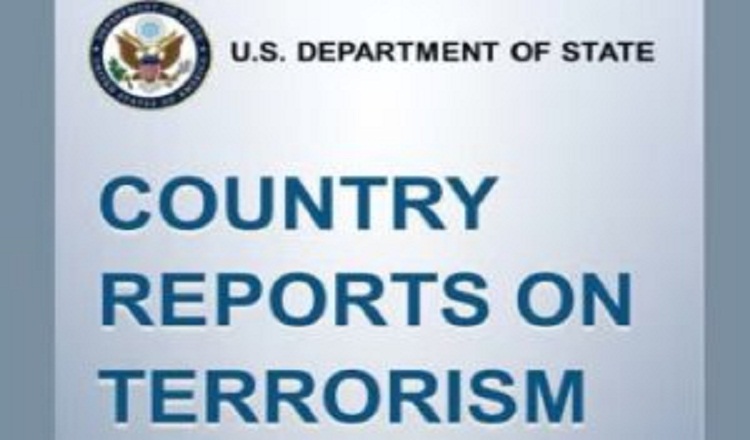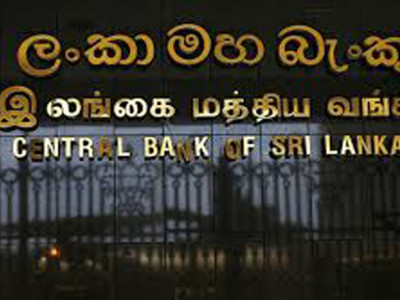(LANKAPUVATH | COLOMBO) – Although there were no terrorist incidents reported in Sri Lanka in 2021, the Sri Lankan government still considers the reorganization of the Liberation Tigers of Tamil Eelam (LTTE), a U.S. designated terrorist organization to be a top threat, the United States Department of State said in the 2021 Country Reports on Terrorism released Monday.
The State Department’s Country Reports on Terrorism 2021on Sri Lanka said Sri Lanka has continued efforts to enhance its counterterrorism capabilities and to improve border security, including through engagement with the United States and other international partners.
However, efforts were somewhat hampered by the COVID-19 pandemic and a government focus on opening the country for economic recovery.
While the rise of radicalization and extremism are security concerns in Sri Lanka, government security officials concerned that the legacy of LTTE could inspire terrorism in Sri Lanka and throughout the diaspora internationally.
The United States said it has discussed strategies with Quad country and like-minded partners on how to support Sri Lanka in countering terrorism.
The government was cooperative in engaging on CT and attended several meetings of the Global Coalition to Defeat ISIS as observers.
Full Country Report on Terrorism 2021: Sri Lanka
Overview: Sri Lanka has continued efforts to enhance its CT capabilities and to improve border security, including through engagement with the United States and other international partners. Efforts were hampered by the COVID-19 pandemic and a government focus on opening the country for economic recovery. The investigations into the 2019 Easter Sunday suicide attacks undertaken by ISIS-inspired terrorists culminated in the indictment of 25 individuals in August.
In November, the government also indicted the former secretary of the Ministry of Defense and the former Inspector General of Police, who were part of the greater inquiry into the suspected failures of officials to act on available intelligence that might have prevented the 2019 attacks.
While the rise of radicalization and extremism are security concerns in Sri Lanka, the Sri Lankan government still considers the reorganization of the Liberation Tigers of Tamil Eelam (LTTE) — a U.S. designated FTO that fought the government for 26 years until its military defeat in 2009 — to be a top threat. LTTE’s legacy leaves some government security officials concerned that it could inspire terrorism in Sri Lanka and throughout the diaspora internationally. The government was cooperative in engaging on CT and attended several meetings of the Global Coalition to Defeat ISIS as observers.
2021 Terrorist Incidents: There were no terrorist incidents reported in Sri Lanka in 2021.
Legislation, Law Enforcement, and Border Security: The Government of Sri Lanka continued to use the Prevention of Terrorism Act (PTA), enacted in 1979 as a wartime measure, enabling the police to exercise broad powers to search, arrest, and detain terrorist suspects for investigation. Officially, the Ministry of Foreign Affairs reports the detention of 136 suspects under the PTA in 2021 while civil society organizations report that more than 300 detentions remain. A cabinet subcommittee and a committee comprising senior representatives from across the government were appointed in June to revisit the PTA and to bring its provisions in line with contemporary national security requirements as well as Sri Lanka’s human rights obligations and commitments. No legislation was implemented in 2021 to directly support investigations or prosecution of terrorism offences. Sri Lanka implemented the Cyber Security Bill and the Defense Cyber Command Bill to strengthen cyber security against cyber-facilitated acts of terrorism.
The Border Risk Assessment Center (BRAC) officially opened in December at the Department of Immigration and Emigration under the Ministry of Defense, with technical support from the International Organization for Migration (IOM) and with $5 million in funding from the government of Australia. The BRAC was established as part of the Integrated Border Management strategy for national agencies to share intelligence, systems, resources, and real-time data. At year’s end, 11 organizations were jointly contributing to the BRAC
Sri Lanka conducted two rounds of Border Security Roundtables with the U.S. Department of State. The discussions focused on the potential implementation of PISCES, INTERPOL connectivity, and the Watchlisting Assistance and Support Program.
There were several reports of ex-LTTE cadres trafficking drugs and weapons, with some officials alleging those instances were efforts to resuscitate the LTTE despite the lack of evidence pointing toward organized, coordinated efforts to revive the organization. The recovery of arms, ammunition, and explosives in the Northern and Eastern Provinces where the LTTE was active received enhanced media coverage. In December, authorities recovered 190,755 rounds of ammunition from a workshop in Paranthan, Kilinochchi District.
Authorities identified a group called the Tamil Eelam Cyber Force that has been hacking government and private websites in Sri Lanka. The Terrorism Investigation Division arrested two suspects in Jaffna for alleged online promotion of the LTTE. In another case, the National Investigations Agency (NIA) of India arrested a former LTTE intelligence operative, 42-year-old Satkunam (alias Sabesan), for alleged involvement in drugs and arms trafficking from Pakistan to Sri Lanka. The complaint included five other Sri Lankans, following the seizure of five AK-47 rifles, 300 kilos of heroin, and a thousand 9mm ammunition rounds. The NIA believes that Satkunam was involved in financing an LTTE revival in Sri Lanka.
Countering the Financing of Terrorism: Sri Lanka’s FIU took steps for the prevention, detection, investigation, and prosecution of offenses related to money laundering and terrorist financing, though no significant results were evident. No new legislation has been passed to combat financing of terrorism since 2019. Three cases with charges of terrorism financing are pending in the High Court. The legal provisions of the Financial Transaction Reporting Act are in place for future law enforcement efforts.
Countering Violent Extremism: No FTFs or associated family members were repatriated in 2021. The Commissioner General of Rehabilitation is working on a reintegration mechanism to deradicalize youths back into their families. The government of Sri Lanka is looking to educational reforms to enhance skills development for employment. The Commissioner General is studying conflict prevention strategies for communities and continues to participate in meetings of the South Asian Network on Preventing and Countering Violent Extremism.
International and Regional Cooperation: The GCERF Sri Lanka project was launched in 2021. The United States and other donors contributed to the development and approval of the program strategy and are regularly updated on the progress of the program. UNODC has worked with the U.S. Embassy on prison system reforms in Sri Lanka, specifically targeting the need to construct prison courtrooms to facilitate hearings. These efforts will address delays in the judicial system that contribute to long detention periods, which can lead to radicalization to violence. The United States discussed strategies with Quad country and like-minded partners on how to support Sri Lanka in countering terrorism.




